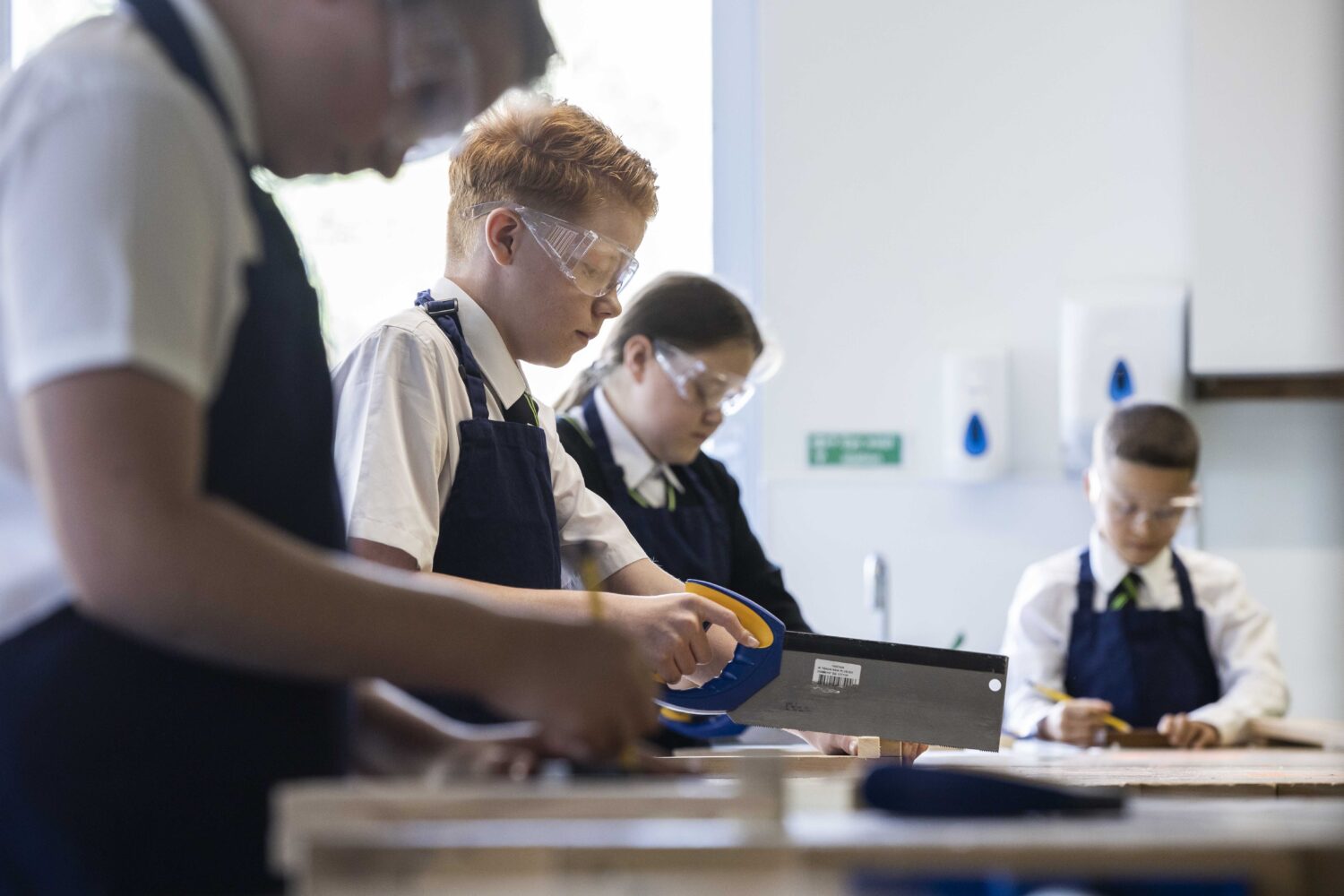Topic
Course Description
GCSE Design and Technology will prepare students to participate confidently and successfully in an increasingly technological world. Students will gain awareness and learn from wider influences on Design and Technology including historical, social, cultural, environmental and economic factors. Students will get the opportunity to work creatively when designing and making and apply technical and practical expertise. Our GCSE allows students to study core technical and designing and making principles, including a broad range of design processes, materials techniques and equipment. They will also have the opportunity to study specialist technical principles in greater depth.
How will I be assessed?
There are two assessments. One is an external exam taken at the end of year 11 and the other is a practical project. Each assessment is worth 50% of the final GCSE grade.
External assessment: 2 hour written exam (100 marks):
A mix of short answer, structured and extended writing questions assessing candidates’ knowledge and understanding of:
- technical principles
- designing and making principles
along with their ability to:
- analyse and evaluate design decisions and wider issues in design and technology.
Non-exam assessment (NEA): 30-35 hours (100 marks). This component assesses the practical application of: core technical principles, specialist technical principles and designing and making principles. This is a substantial ‘design and make’ task. Students will produce a prototype and a portfolio of evidence which will be marked by teachers and moderated by AQA.
Assessment criteria:
- Identifying and investigating design possibilities
- Developing a design brief and specification
- Generating and developing design ideas
- Manufacturing a prototype
- Analysing and evaluating design decisions and prototypes.
What will I learn?
Knowledge and understanding
Core Technical Principles
In order to make effective design choices students will need a breadth of core technical knowledge and understanding that consists of:
- new and emerging technologies
- energy generation and storage
- developments in new materials
- systems approach to designing
- mechanical devices
- materials and their working properties.
Specialist Technical Principles
In addition to the core technical principles, all students should develop an in-depth knowledge and understanding of the following specialist technical principles:
- selection of materials or components
- forces and stresses
- ecological and social footprint
- sources and origins
- using and working with materials
- stock forms, types and sizes
- scales of production
- specialist techniques and processes
- surface treatments and finishes.
Each specialist technical principle should be delivered through at least one material category or system. The categories through which the principles can be delivered are: papers and boards, timber based materials, metal based materials, polymers, textile based materials, electronic and mechanical systems.
Designing and making principles
Students should know and understand that all design and technology activities take place within a wide range of contexts.
They should also understand how the prototypes they develop must satisfy wants or needs and be fit for their intended use. For example, the home, school, work or leisure.
They will need to demonstrate and apply knowledge and understanding of designing and making principles in relation to the following areas:
- investigation, primary and secondary data
- environmental, social and economic challenge
- the work of others
- design strategies
- communication of design ideas
- prototype development
- selection of materials and components
- tolerances
- material management
- specialist tools and equipment
- specialist techniques and processes.
What could I do next?
GCSE Design and technology allows students to access further study at sixth form and university.
Skills that students can take with them into any working environment or further education course include:
- An opportunity for students to identify and solve real problems by designing and making products or systems in a wide range of contexts relating to their personal interests.
- This qualification aims to relate authentic real world awareness of iterative design practices and strategies used by the creative, engineering and manufacturing industries. Students will be required to use critical thinking, leading towards invention and design innovation, to design and make prototypes that solve real and relevant problems, considering their own and others’ needs, wants and values.



